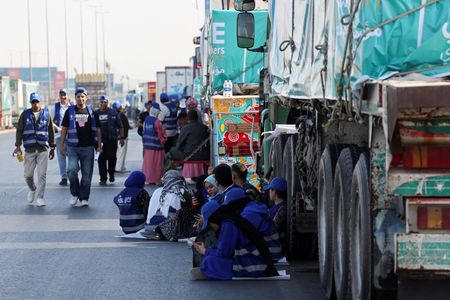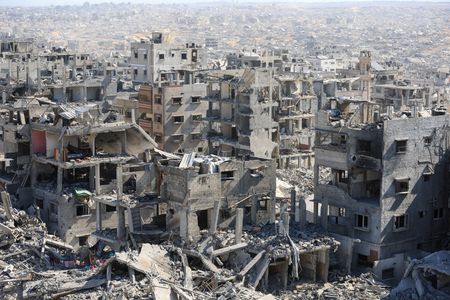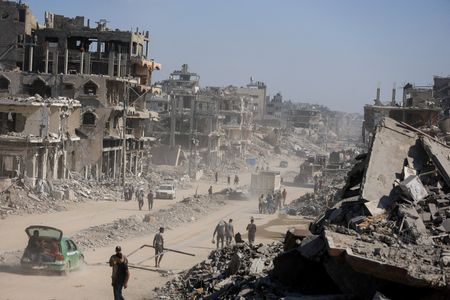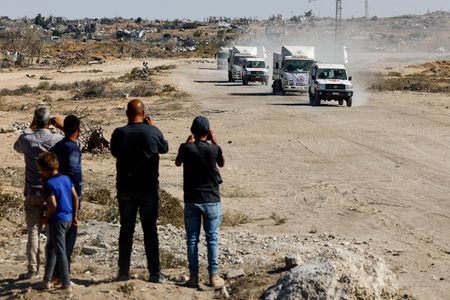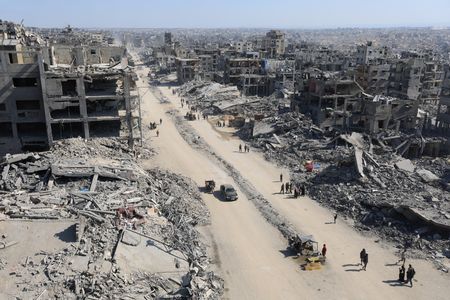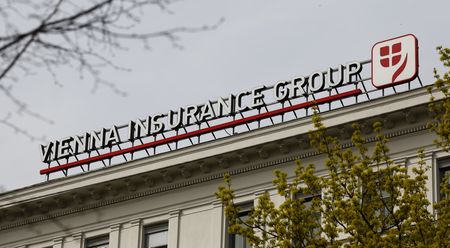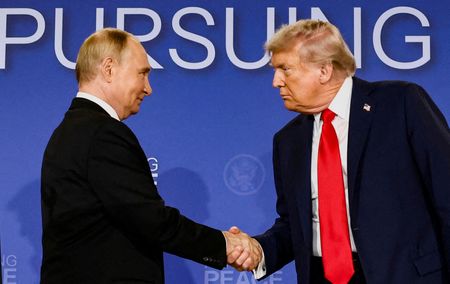By Nidal al-Mughrabi and Alexander Cornwell
CAIRO/TEL AVIV (Reuters) -Israel said on Thursday it was preparing for the reopening of Gaza’s Rafah crossing with Egypt to let Palestinians in and out, but set no date as it traded blame with Hamas over violations of a U.S.-mediated ceasefire.
A dispute over the return of hostages’ bodies held by Hamas threatens to derail the truce and other unresolved elements of the plan, including disarmament of militants and Gaza’s future governance.
Israeli government spokesperson Shosh Bedrosian told reporters Israel remained committed to the agreement and continued to uphold its obligations, demanding Hamas return the bodies of the 19 deceased hostages it had not handed over.
The Islamist faction has handed over 10 bodies but Israel said one was not that of a hostage.
Hamas said it remained committed to the Gaza agreement and to handing over all the remaining bodies of hostages, but that returning the remains may take time as some were buried in tunnels destroyed by Israel and others were under the ruins of buildings that Israel had bombed.
The armed wing of Hamas said the handover of more bodies in Gaza, reduced to vast tracts of rubble by the war, would require the admission of heavy machinery and excavating equipment into the Israel-blockaded Palestinian enclave.
On Thursday, a senior Hamas official accused Israel of flouting the ceasefire by killing at least 24 people in shootings since Friday, and said a list of such violations was handed over to mediators.
“The occupying state is working day and night to undermine the agreement through its violations on the ground,” he said.
The Israeli military did not immediately respond to the allegation of violating the ceasefire. It has previously said some Palestinians have ignored warnings not to approach Israeli ceasefire positions and troops “opened fire to remove the threat”.
After local health authorities said an Israeli airstrike in Khan Younis in southern Gaza killed two people, the Israeli military said its forces fired at several individuals who emerged from a tunnel shaft and approached troops, describing them as posing an immediate threat.
Palestinian local health authorities said at least seven people were killed by Israeli fire across the Gaza Strip on Thursday. People in Gaza reported seeing drones and warplanes in the skies over the southern Gaza Strip with sporadic gunfire heard from time to time.
CALL TO DISARM
Israel has said the next phase of the 20-point plan to end the war, a blueprint engineered by U.S. President Donald Trump’s administration, calls for Hamas to relinquish its weapons and cede power, which it has so far refused to do.
Hamas has instead launched a security crackdown in urban areas vacated by Israeli forces, demonstrating its power through public executions and clashes with local armed clans.
Trump repeated his threats against the militia group, saying in a post, “If Hamas continues to kill people in Gaza, which was not the Deal, we will have no choice but to go in and kill them.”
Asked about his recent threats toward Hamas, Trump told reporters in an Oval Office event, “If they behave, good. If they don’t behave, we’ll take care of it.”
He added that action would not involve U.S. forces, but be carried out under U.S. auspices.
Twenty remaining living Israeli hostages were freed on Monday in exchange for thousands of Palestinians jailed in Israel.
The Gaza health ministry said on Thursday Israel had released 30 bodies of Palestinians killed during the conflict, taking the number of bodies it has received since Monday to 120.
Longer-term elements of Trump’s plan, including the make-up of an international “stabilization force” for the densely populated territory and moves towards creating a Palestinian state – rejected by Israel – have yet to be hashed out.
MASSIVE AID INCREASE NEEDED
In a statement on Thursday, Israel’s military aid agency COGAT said coordination was under way with Egypt to set a date for reopening the Rafah crossing for movement of people after completing the necessary preparations.
COGAT said the Rafah crossing would not open for aid as this was not stipulated by the truce deal at any stage, rather all humanitarian goods bound for Gaza would pass through Israeli-controlled Kerem Shalom after undergoing security inspections.
With famine conditions present in parts of Gaza, U.N. Under-Secretary-General for Humanitarian Affairs Tom Fletcher told Reuters in an interview on Wednesday that thousands of aid vehicles would now have to enter Gaza weekly to ease the crisis.
Aid trucks rolled into Gaza on Wednesday, but medical care remains scarce and most of the 2.2 million population is homeless. Ismail Al-Thawabta, head of the Hamas-run Gaza media office, said the aid that had entered since the fighting subsided was a “drop in the ocean”.
Much of the heavily urbanised enclave has been rendered a wasteland by Israeli bombardments and airstrikes that have killed nearly 68,000 Palestinians, according to Gaza health authorities.
The war was triggered by Hamas’ October 7, 2023, attack on southern Israel in which some 1,200 people were killed and 251 taken hostage back to Gaza, according to Israeli tallies.
(Reporting by Nidal al-Mughrabi, Yomna Ehab and Ahmed Tolba in Cairo, Alexander Cornwell, Steven Scheer in Jerusalem, Tala Ramadan in Dubai, and Jarrett Renshaw in Washington; editing by Mark Heinrich, Hugh Lawson and Nia Williams)

